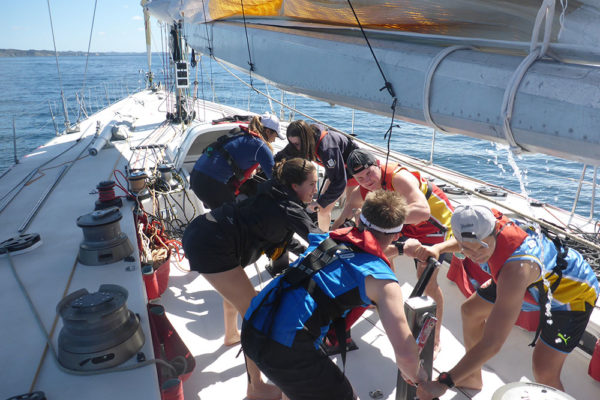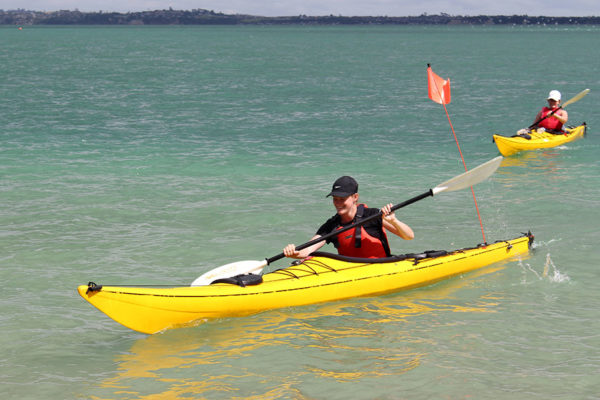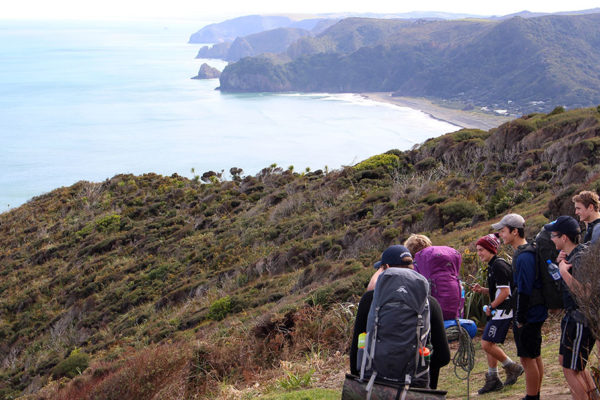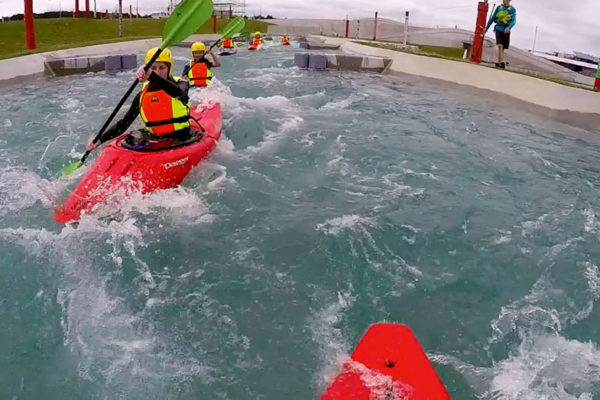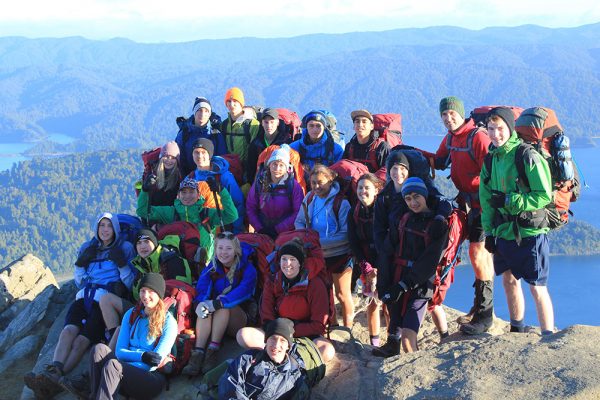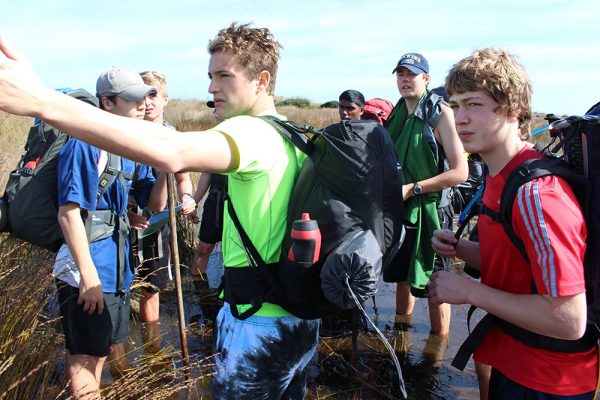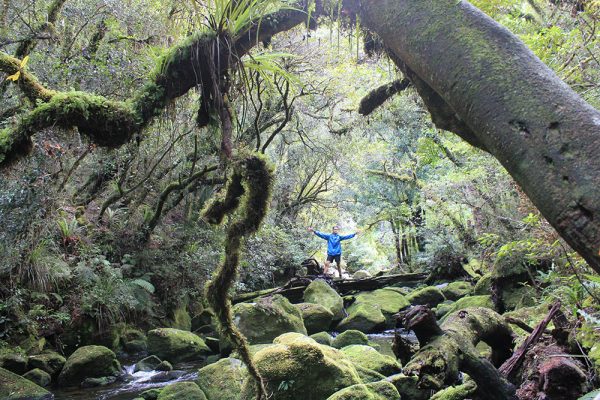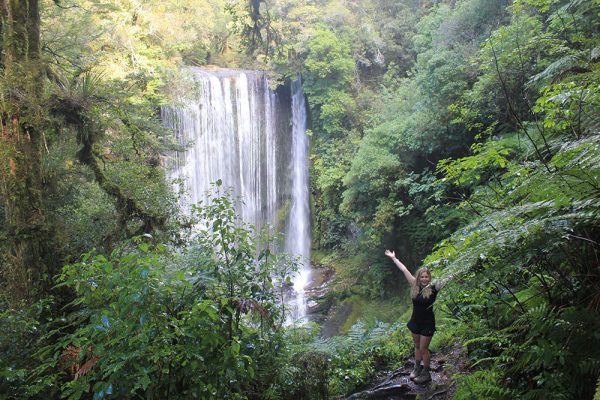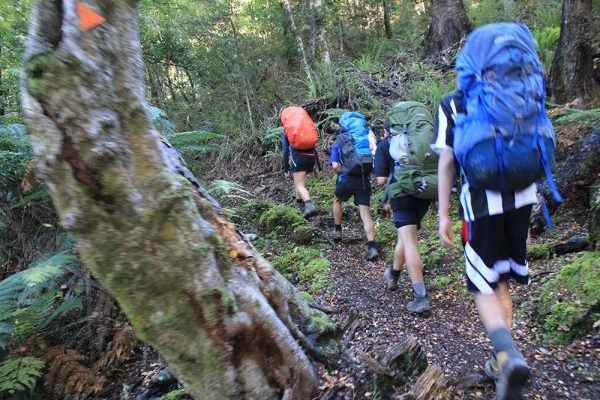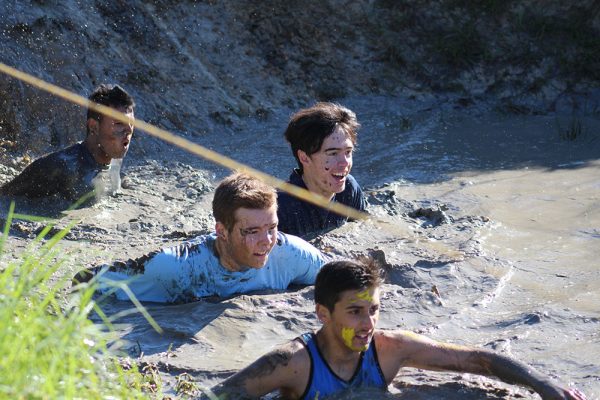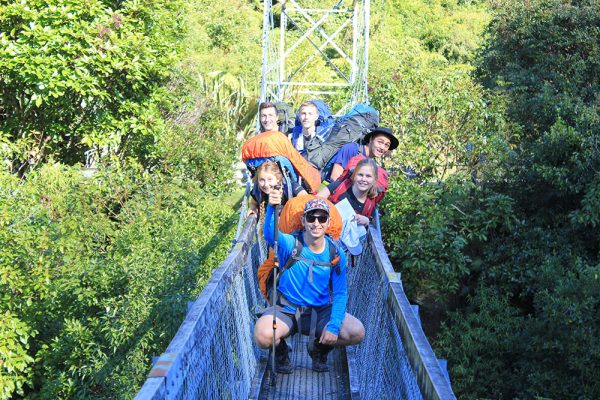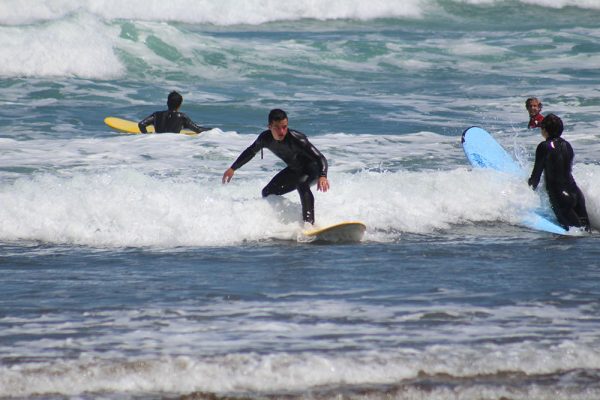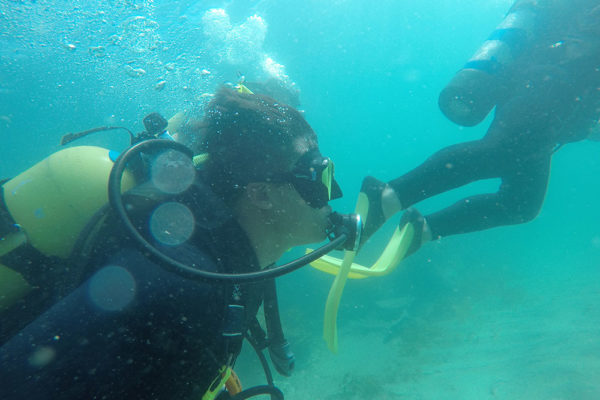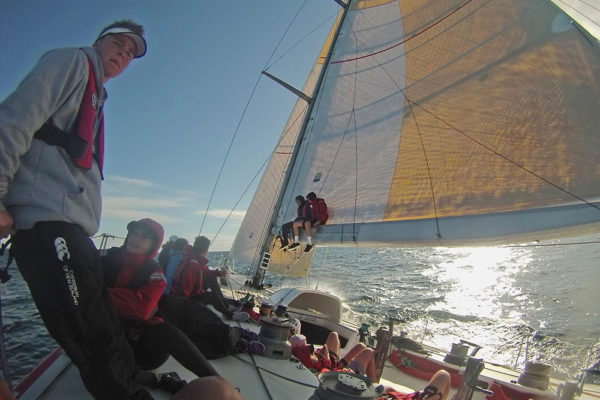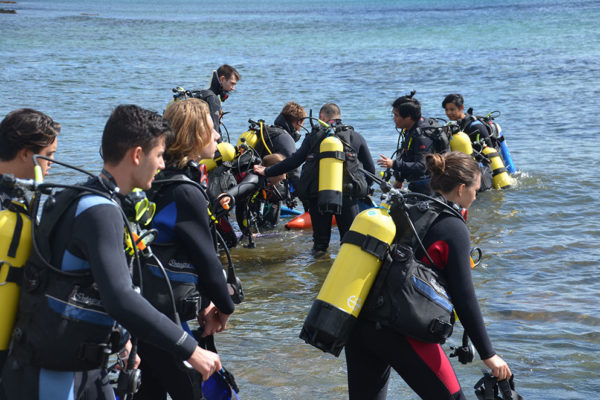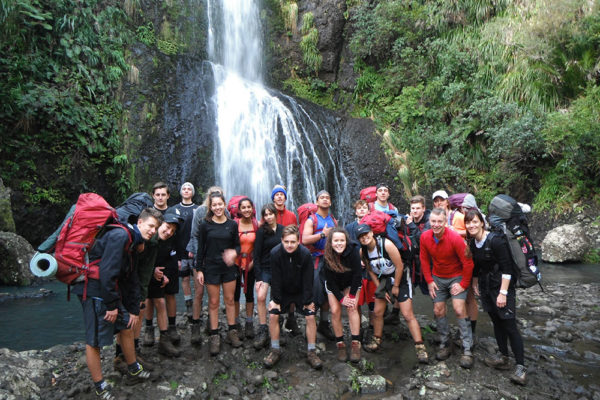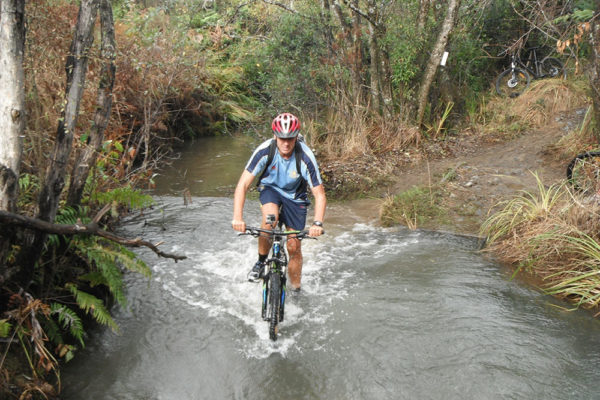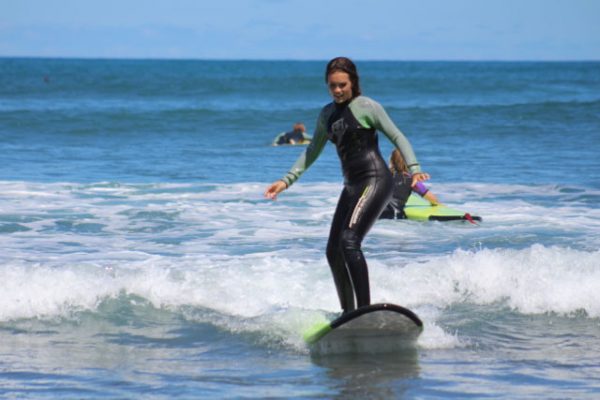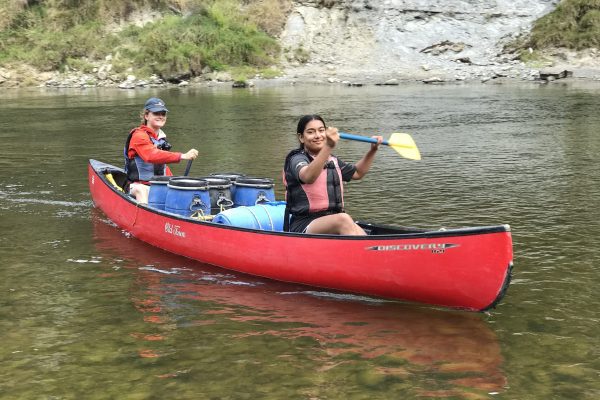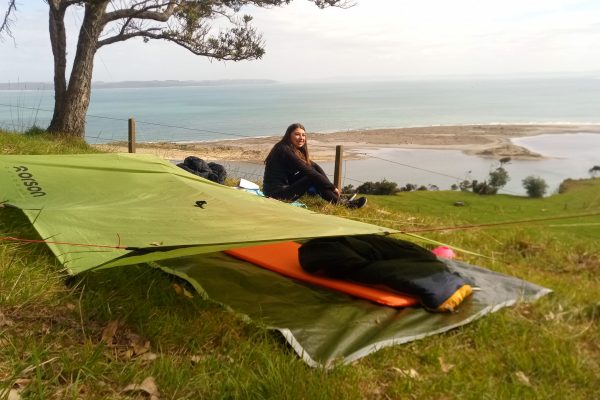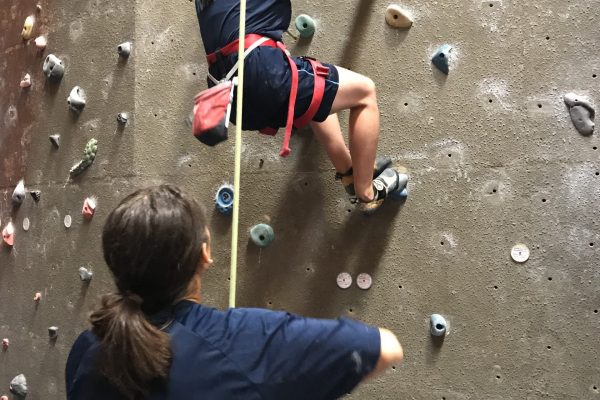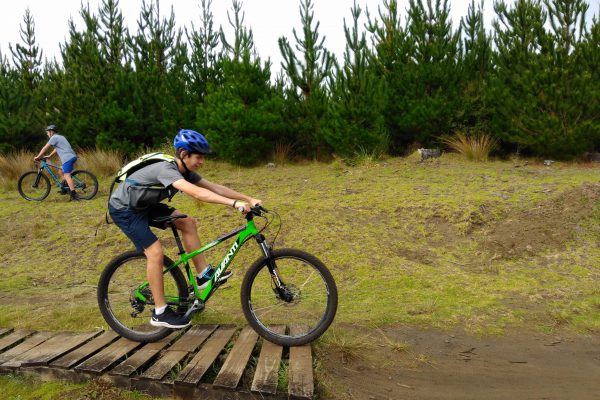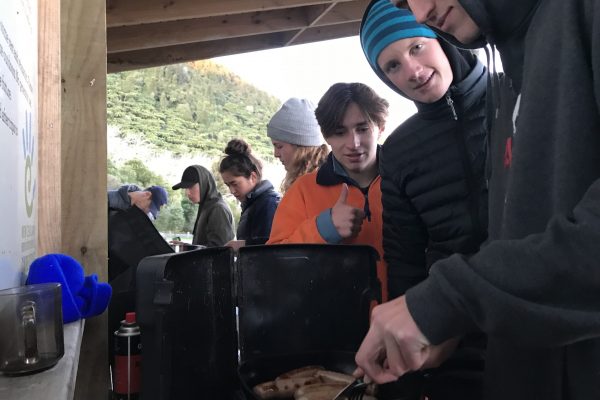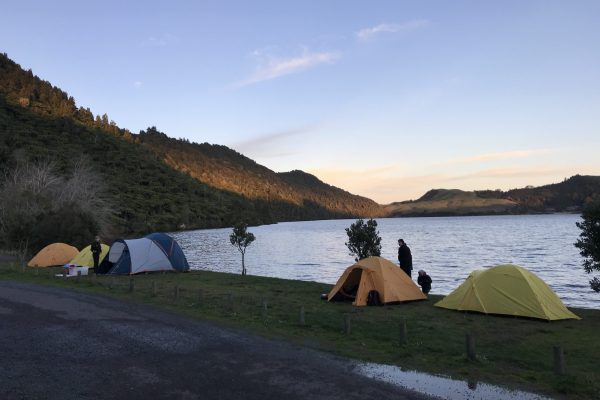Comments from a MAGS Parent:
“Both of my daughters take Outdoor Education this year, one in Year 12 and one in Year 10. Both are in top stream classes and are high academic achievers at Mount Albert Grammar School. If I could choose one subject for my children to do throughout their schooling, it would be Outdoor Education.
As a Child and Adolescent Psychotherapist, I observe that Outdoor Education promotes welling in all aspects – experiences that are device-free, in nature, and connected with peers and teachers are all things that we must protect for all of our children.
Moreover, the skills learned are transferable to other subjects and key to future success – for example, team work, self awareness and resilience are explicitly taught and innately core to the subject.
I have found that the course work is highly academic and requires and develops a high standard of literacy, and technical problem solving – the perfect real world application of STEM. I am also a former professional engineer so I am able to comment on this aspect of Outdoor Education as well.
It is a vital part of my daughters’ education.”
Comments from MAGS Parents:
“Our children have all taken Outdoor Education. Like many, we were initially hesitant to support this through senior years at school, because it seemed ‘instead of’ a more university-transferable subject. However, our initial reluctance was overcome by the insight that our son shared around the value of the subject. Since then, we have seen skills develop in leadership, teamwork, risk assessment, perseverance and empathy. These are all in addition to the knowledge and skills developed around the environment and specific outdoor pursuits. Our mistake was to think of Outdoor Education as ‘instead of’, rather than ‘multiplied impact’.
Our experience is also as senior doctors. Medicine has overestimated the importance of ‘academic’ subjects in its student selection, and yet we do not use the subjects taught in most prerequisite subjects’ content (for example, Shakespearean English, or Calculus) as much as the above skills gained through Outdoor Education. We use Outdoor-Ed-skills daily in our work.”
Comments from Dr Shayne Galloway, former University of Otago lecturer:
“The result was clear: students who had participated in Outdoor Education at secondary level arrived at university or polytechnic with roughly a two-year advantage in leadership, maturity, and resilience over those who had not.”
“The benefits accrued through Outdoor Education extend well beyond individual development. A national study by Zink and Boyes (2006) found that schools consistently identified Outdoor Education’s personal and social outcomes as its greatest value. Employers echo this view. As one teacher told RNZ: ‘The skills students gain in Outdoor Education are exactly the ones employers say they can’t teach in the workplace — collaboration, adaptability, and initiative.’”
Comments from Dr Charlotte Jelleyman, AUT:
“Research consistently shows that the benefits of outdoor experiences are overwhelmingly positive, particularly when engagement occurs regularly over time. Conversely, reduced connection with the natural environment is strongly linked to negative outcomes, including the youth mental health crisis.”
Student testimony
Outdoor Education has given me a toolkit I rely on daily, not just in work but in life. It is where I learned how to lead without having all the answers, how to hold space for vulnerability, and how to navigate uncertainty with calmness and clarity.
I now believe that growth takes time, that feedback is a gift, and that relationships are the real curriculum. Being in nature taught me how to listen to myself, to others, and to the land. It made me more resilient, adaptable and values driven. It showed me how to create experiences that stay with people long after they pack their gear away.
Outdoor Education didn’t just shape my career, it shaped who I am, and through that the lives of everyone I have the privilege to work with.
– Natalie McNulty
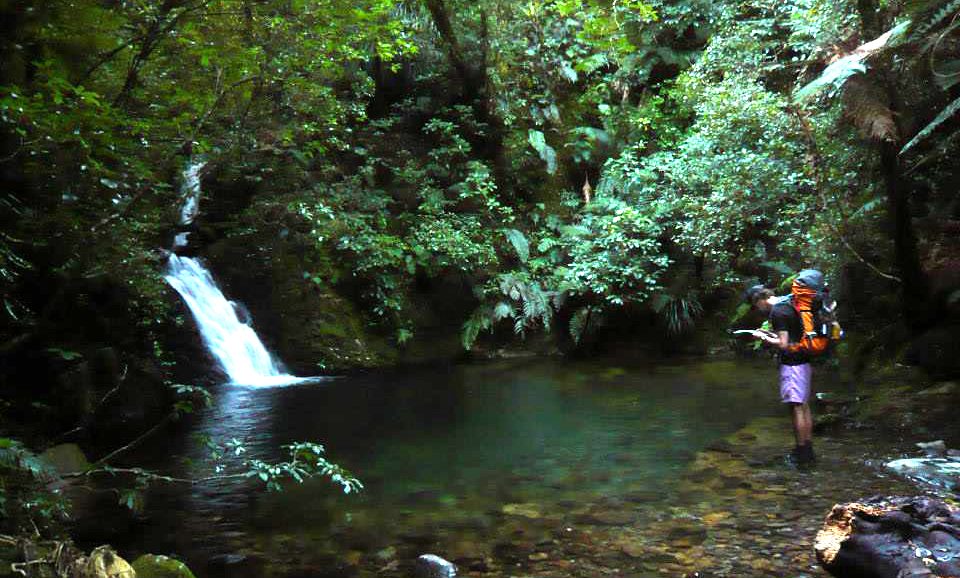
In Outdoor Education, students learn ‘through’, ‘in’ and ‘about’ the outdoors:
Through the outdoors: students develop understanding, skills and attitudes to enhance interactions and relationships with others
In the outdoors: students develop safe practices
About the outdoors: students develop knowledge and understanding of the need to protect and care for the environment.
Outdoor Education may be taken as an Option in Year 10. Students experience numerous outdoor pursuits to develop their transferable skills, learn basic outdoor skills and knowledge. The subject may be continued from Years 11-13 and also taken for Scholarship. In Year 11 students complete a course related to movement strategies, interpersonal skills, safe behaviours and personal responsibility all related to outdoor pursuits. During Year 12 they practice personal and social responsibility, planning, risk management, group processes and bushcraft before the focus turns to leadership, risk management, independent planning and preparation in Year 13.
A side effect of the rise of technology is that it’s made skills like communication, leadership, and cultural intelligence more important to learn than ever. Recently, employers have started valuing these things more and the degree is no longer king. Soft skills and emotional intelligence, is not something a machine can replicate. Students who complete Outdoor Education to Level 3 will develop their key attributes to a high level. This is often what makes them more employable, as the subject has a strong emphasis on attitude, aptitude, ambition, aspiration and attendance.
Year 13 Outdoor Education is university-approved and may lead to tertiary study for those wishing to make a career in areas linked with the outdoors.
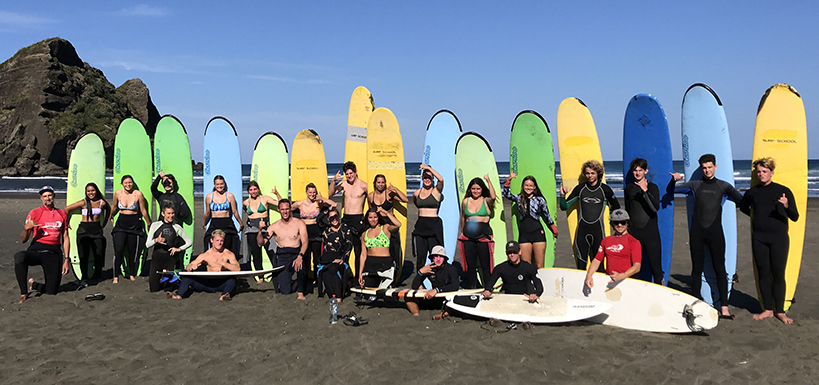
Student testimony
“During my time at MAGS, Outdoor Education was a source of happiness for me, contributing to my NCEA Achievement Standard credits as much as any other subject.
Outdoor Education gave me skills I never found in any other subjects at MAGS. The programme challenged myself and my classmates by exposing us to environments that pushed us to expand our social and problem solving skills.
I grew as a person in the programme – and not just in practical outdoor skills. The social and emotional intelligence I gained serves me every day in life. The ability to effectively work with people, understand their needs, and peacefully compromise with their differing opinions are some of the many skills the program ingrained in me.
Since leaving MAGS, I was fortunate enough to be admitted into Yale University, and I can genuinely say Outdoor Education endorsed my application. Throughout my first year, it helped strengthen the relationships I have with my peers and professors, and it empowered me to deal with the challenges of everyday university life. It is my most valued subject of secondary school.”
– Jonathan Winter
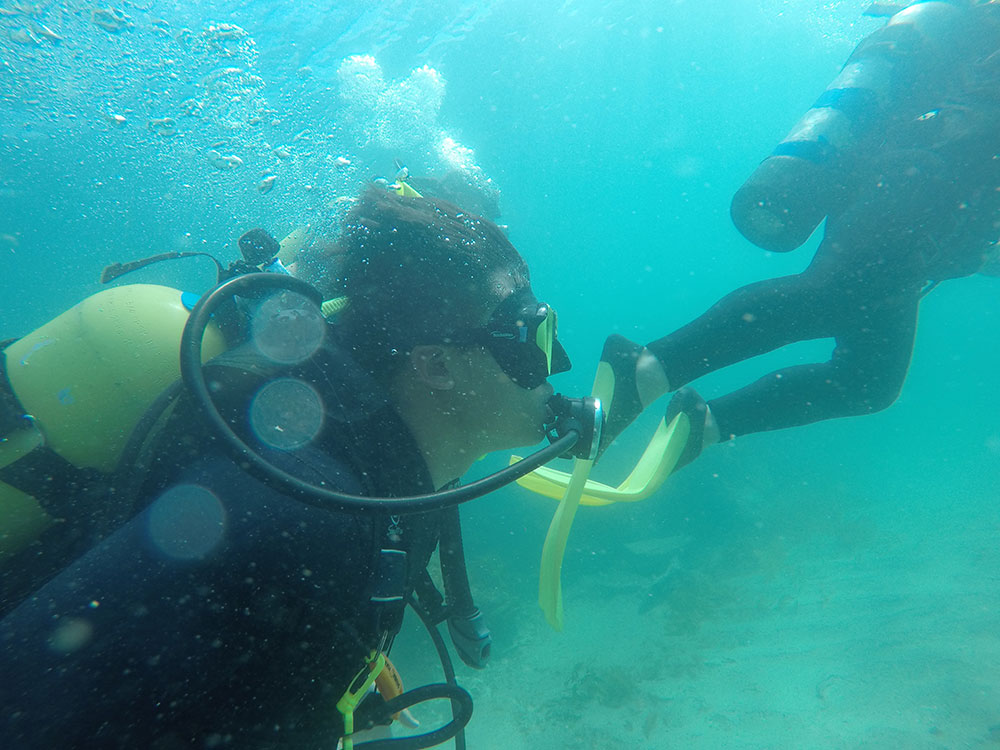
Student testimony
“I initially took Outdoor Education as a bit of a fun subject to keep me focused on my other classes.
It took a lot of persuasion to get my parents to let me take it as they didn’t see the benefit. They now think that it was one of the best things I did at school.
Outdoor Education opened a door to a whole world I never knew existed, it pushed me into an industry where I can teach, manage and guide all around the world and have a great time along the way. Which coming from a central city school I don’t think I would have known about otherwise. It definitely tested me mentally and physically. I was shy, un-coordinated and lacked confidence in my ability.
But by pushing my limits I made great friends and learnt fantastic skills. Actually, the friends I made in that class are some of the few people I still talk to from MAGS. The skills learnt in this class can be applied to all aspects of life. Leadership, communication, compromise, compassion and laughter even when things might not be so easy. I use these on a daily basis whether at work, with friends or stuck in an airport with lost bags.
The outdoor skills have also helped along the way. At the moment, I am currently working in Squamish, BC in Canada at a rafting company where I am the supervisor of an outstanding office team, and help run logistics. My career might not be glamorous but it is extremely fulfilling, exciting and diverse. Every day is different and you are always kept on your toes. I have no idea where I would be had I not take Outdoor Education at school, but it certainly wouldn’t be here and I credit the MAGS Outdoor Education programme for this.”
– Natasha Johnson
Student testimony
“I studied Outdoor Education every year it was offered to me at Mount Albert Grammar school and then continued to study Outdoor Education right through to a tertiary level.
My time in the program at Mount Albert Grammar school was not only a break from the routine of school but a powerful median for my personal growth as a young adult.
I recently spent some time helping to run a 14-day expedition for a group of people studying the Wharton MBA at the University of Pennsylvania, one of the most prestigious business schools in the world. During the venture, this group of professional adults biked, hiked and rafted from the West coast of the South Island to the East coast.
The purpose of the venture was to develop their ability to problem solve, have mental strength in adversity and gain some very valuable social skills through working in a team that was being pushed to their limits. Throughout this venture I was thinking about how lucky I was to have had the opportunity to experience that growth in secondary school.
The opportunity for growth that the Outdoor Education program provides is an opportunity that is not available inside of the classroom. Through challenging myself during the program I learnt a lot of valuable skills such as, the ability to rationally think under pressure, adapt to change quickly, resolve conflict within my relationships, the ability to manage and work with risk and lead a team with confidence in any circumstance.
To anyone trying to decide whether or not to take Outdoor Education as a subject I would recommend it above all other subjects for the growth which cannot be had inside.”
– Joshua Bougen

Click here to see MAGS Outdoor Education Instagram: mags_outdoored

Year 10 Outdoor Education
Course content
This course involves both theory and practical lessons. The lessons will be a combination of classroom-based theory and activities based in an outdoor environment. Students attend two classes per week, one in a classroom and the other in a practical setting that may include the pool, climbing wall or fields. During the course of the year there will be offsite trips that will supplement school-based learning.
Topics Taught
- Personal Responsibility through Skateboarding and Surfing
- Positivity through Whitewater Kayaking
- Perseverance through physical challenges and Mountain Biking
- Social Responsibility through Rock Climbing
- Self-Management through Bushcraft, Orienteering and Camping
Students attend two classes per week, one in a classroom and the other in a practical setting that may include the pool, climbing wall or fields. During the course of the year there will be offsite trips that will supplement school-based learning.
Assessment
Each unit will be assessed through a combination of how well a student demonstrates the transferable skills, practical tests, theory tests and self-management.
Course cost
A course cost of approximately $285 covers expenses related to educational trips outside the classroom.
Prerequisites
Satisfactory completion of Year 9 Health and Physical Education with an interest in outdoor pursuits. Due to the nature of the course, demonstration of schoolwide safe behaviour is paramount. There are limited places available in this course and therefore a student’s performance in Year 9, a ballot system and a deposit of the course costs may be required to determine final selection.

Click here to see MAGS Outdoor Education Instagram: mags_outdoored
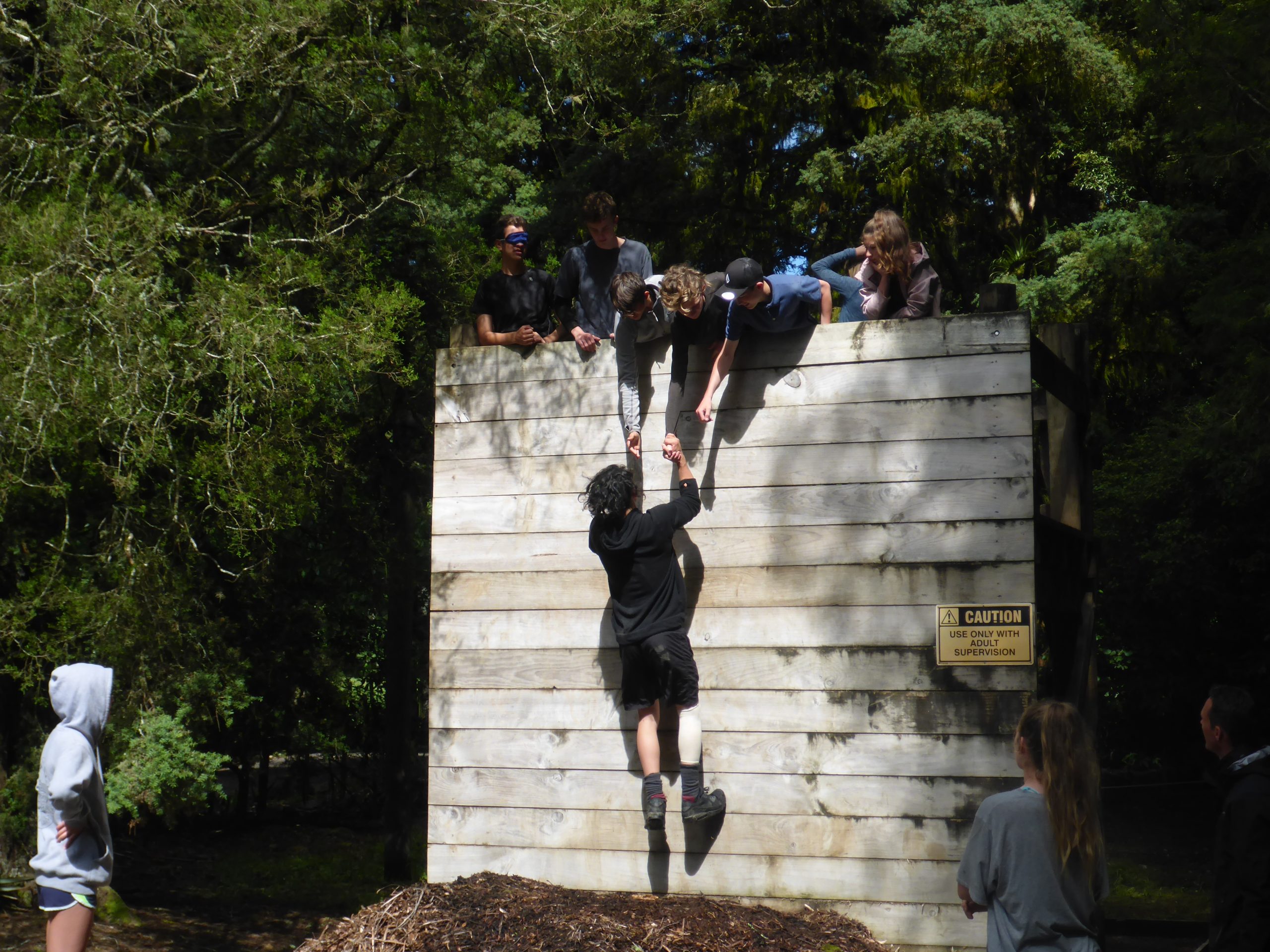
Year 11 Outdoor Education
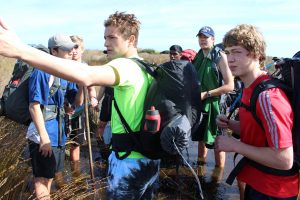 Course Content
Course Content
The course involves both theory and practical lessons. The lessons will be a combination of classroom based theory and activities based in an outdoor environment.
Units of work
- Performance: Movement Strategies – students develop their ability to perform in a variety of outdoor pursuits and demonstrate how to apply effective movement strategies (Skateboarding, Surfing, Orienteering, Mountain Biking, Whitewater Kayaking, Rock Climbing).
- Kotahitanga – students practice interpersonal skills in order to be able to effectively demonstrate these within a group and then explain how these interpersonal skills impact others.
- Haumaratanga: Safety in the Outdoors – students develop an understanding of the need for responsible behaviour when participating in outdoor pursuits.
- Personal Responsibility – across the year students develop self-management strategies and describe the effects these have on participation in outdoor pursuits.
Students attend four classes per week in a mixture of classroom and practical settings that may include the pool, climbing wall or fields. During the course of the year there will be offsite trips that will supplement school-based learning.
Course cost
A course cost of approximately $385 covers expenses related to educational trips outside the classroom.
Prerequisites
To qualify for 11 Outdoor Education the following prerequisites must be met:
1. At least 24 points from the 10OE1 course,
The 24 points are allocated through the NZQA grade score marking allocation.
Grade score marking recognises the quality of evidence within each grade. Grades can show an upper and lower result in a grade.
2. Paid 10OE1 course costs in full
OR HoD approval
Please note: there are limited places available in this course and therefore a students performance in Year 10 Physical Education (10PE) and 10 Health (10HE) may also be required to determine final selection.

Click here to see MAGS Outdoor Education Instagram: mags_outdoored
Year 12 Outdoor Education
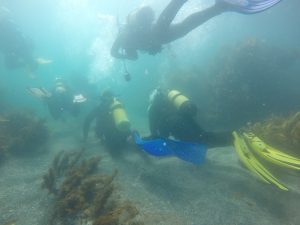
Course Content
Students attend four classes per week in a mixture of classroom and practical settings that may include the pool, climbing wall or fields. During the course of the year there will be offsite trips that will supplement school-based learning.
Units of work
- Personal and Social Responsibility – students develop effective interpersonal skills in order to be able to work in a group and realise how these interpersonal skills impact on others.
- Quality Performance – students develop their performance to a high level in outdoor pursuits (Scuba, Whitewater Kayaking, Climbing, Mountain Biking)
- Risk Management – students develop their ability to identify risks, hazards and relevant strategies related to the activities they are participating in (Climbing, Whitewater Kayaking).
- Group Processes – students analyse the stages of group development through outdoor pursuits
- Event Planning – students examine the implementation and outcomes related to the activities they are participating in (Mountain Biking).
- Bushcraft – students develop an understanding of the requirements for a safe multi-day tramp in the bush, including clothing, equipment, weather, navigation aids and food (Survival Camp, Orienteering event, Tramping)
16 AS Credits (all internal)
Course cost
A course cost of approximately $850 covers expenses related to educational trips outside the classroom.
Prerequisites
To qualify for 12 Outdoor Education the following prerequisites must be met:
1. At least 24 points from the 11OE1 MCEA course
The 24 points are allocated through the NZQA grade score marking allocation.
Grade score marking recognises the quality of evidence within each grade. Grades can show an upper and lower result in a grade.
2. Paid 11OE1 course costs in full
OR HoD approval

Click here to see MAGS Outdoor Education Instagram: mags_outdoored
Year 13 Outdoor Education
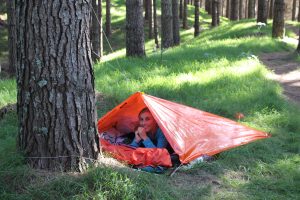 Course Content
Course Content
This course involves both theory and practical lessons. The lessons will be a combination of classroom based theory and activities based in an outdoor environment. Please note: an extra internal written assessment is available for those students who may be in need of an extra four credits.
Units of work
- Independence – students practice the state of being independent while preparing for and participating in a surf camp
- Judgement – students practice making considered decisions or coming to sensible conclusions while preparing for and completing the Whanganui Journey.
- Perseverance – students practice persisting in doing something despite difficulty or delay in achieving success by preparing for and completing a timed mountain biking circuit.
- Reliability – students practice the ability to be relied on or depended on, as for accuracy, honesty, or achievement while preparing for and completing a three day Adventure Race.
- Creativity – students practice the use of imagination or original ideas to create a personal outdoor pursuit based event.
- Perspective & Gratitude – students take in the big picture view through a Solo camping experience designed to help you show gratitude.
15 (+ 4) Achievement Standard Credits (all internal)
Course cost
A course cost of approximately $800 covers expenses related to educational trips outside the classroom.
Prerequisites
To qualify for 13 Outdoor Education the following prerequisites must be met:
1. At least 35 points from the Achievement Standards from 12OE1.
The 35 points are allocated through the NZQA grade score marking allocation.
Grade score marking recognises the quality of evidence within each grade. Grades can show an upper and lower result in a grade.
2. Paid 12OE1 course costs in full
OR HoD approval
Please note: there are limited places available in this course and therefore a students performance in Year 12 and an interview with the Head of Department may be required to determine final selection.

Click here to see MAGS Outdoor Education Instagram: mags_outdoored
Career pathways
Students who complete Outdoor Education to Level 3 will develop their key attributes to a high level. This is often what makes them more employable, as the subject has a strong emphasis on attitude, aptitude, ambition, aspiration and attendance.
The Year 13 course is university approved, and may lead to tertiary study for those wishing to make a career in areas linked with the outdoors. Possible jobs include Outdoor Instructor or Guide, Teacher, Challenge Course Facilitator, Environmental Educator, Event Co-ordinator, jobs in conservation, in the tourism sector (including business and marketing), and in outdoor equipment retail.

The Macpac Adventure Partnership is an initiative that partners Macpac with Mount Albert Grammar School to demonstrate a sharing of our core values of openness and honesty, adventurous thinking, sustainability and which, in our own way, promote “adventure for life”.
By choosing to select Macpac products you will directly benefit Mount Albert Grammar School, as 10% of your purchase will return to the MAGS Outdoor Education department to be used to purchase clothing and equipment for students to use. Sign up to the Macpac Wilderness club (free to join), mention you are linked to Mount Albert Grammar School and receive 30% off the full retail price of all Macpac products in all stores. 10% of all of your sales will return to MAGS Outdoor Education


